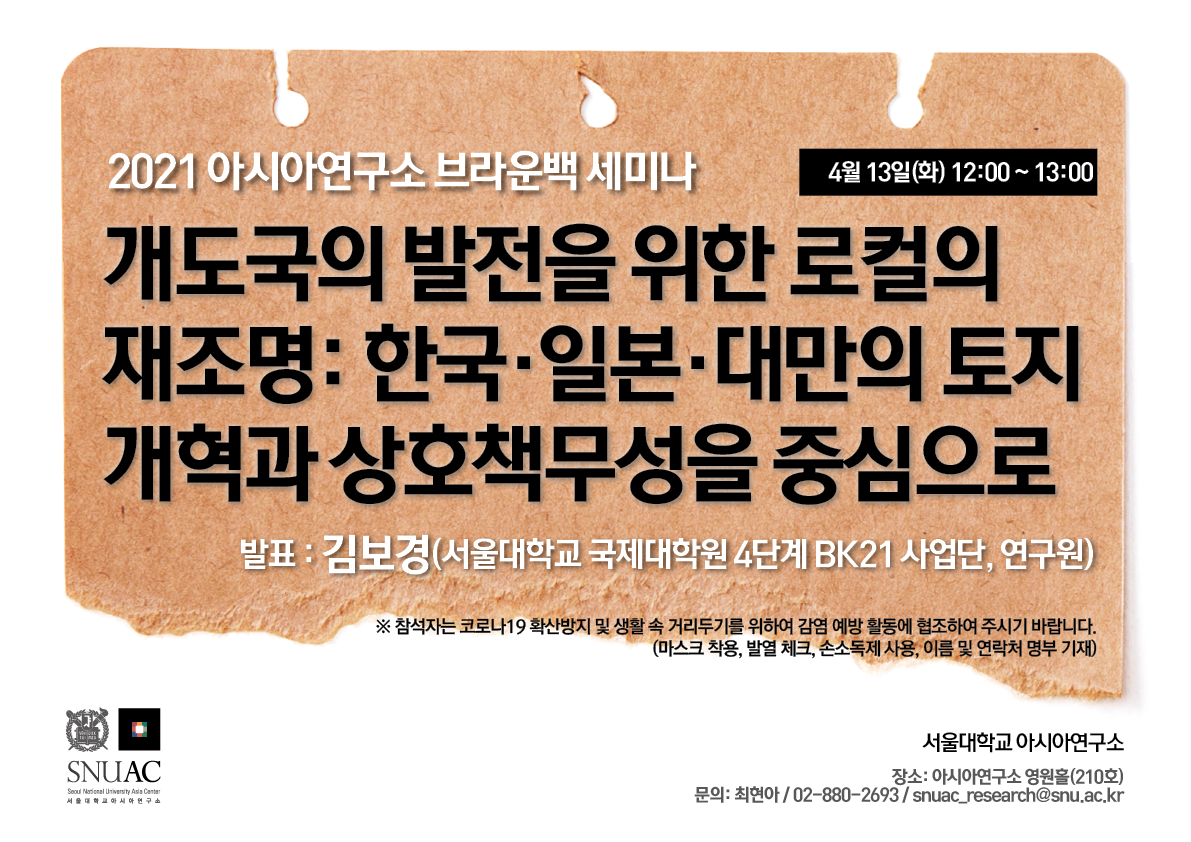Going Local for Development: Lessons from Land Reform and Mutual Accountability in South Korea, Japan, and Taiwan for Developing Countries
- Date: April 13th, Tuesday, 2021 12:00 – 13:00
- Location: Youngone Hall (Room 210), SNUAC (Bldg. 101)
Speaker: Bo Kyung Kim (Researcher, Phase 4 BK21 Project, Seoul National University GSIS)
Land reform is an important socio-economic reform in the sense that it reorganizes the structure of property in overall society and that it operated as an institutionalizing mechanism for state development at a critical juncture. Especially in many developing countries in the stage of state-building or transformation, land reform has never been attempted or remains an uncompleted task for a long time. To fundamentally approach such a problem, what is required is an essential examination of the institutions and initial conditions rather than superficially imitating the experience of other countries. It is in this context that the speaker seeks to offer suggestions to developing countries with problems of rural development and land plundering for establishing international development policy related to land. Thus the speaker will analyze cases of Korea, Japan, and Taiwan from 1945 to the early 1950s to derive an East Asian model out of the three countries’ success in land reform, and suggest applicable universal implications to developing countries.
Land reform in Korea, Japan, and Taiwan was executed with U.S. intervention right after the second world war. The three countries’ land reforms show differences in specifics such as the U.S. means of intervention, enforcement ordinance, and reform process, but all three countries’ cases show similarity in the sense that they all had changes in the range and direction that the U.S. had intended, due to the endogenous conditions on the local level. Major endogenous conditions on the local level of the three countries include that regional autonomous organizations were structured in multiple levels, that there was decentralization between the central government and regions with an institutional channel of communication, and that a system of governance was constructed on a local level where relations of accountability could be formed. All these are analyzed as core elements of the success in land reform. Though it would not be as much as the U.S.’ intervention in Asia after 1945, developing countries are still under external forces such as bilateral or multilateral aid and must undergo the intervention of multiple interest parties and fulfill all required conditions of donor countries. Considering their current situations, cases of the three countries’ land reform will again highlight the importance of constructing governance at local levels and polity within recipient countries.

